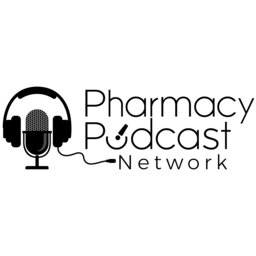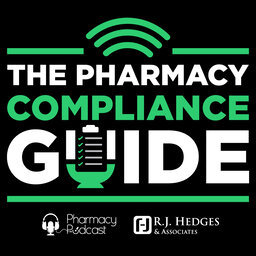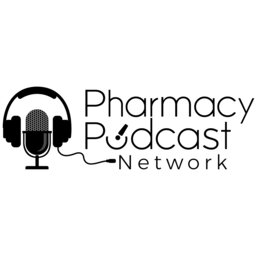Patient Safety Organizations - Pharmacy Compliance Guide - PPN Episode 501
The Fit Pharmacist partner & Pharmacy Podcast Network co-host Dr. Christina Tarantola joins Jeff Hedges president of RJ Hedges & Associates & Pharmacy Compliance Guide podcast host with Tara Modisett, Executive Director of Alliance for Patient Medication Safety - recorded live at the NCPA Annual Conference 2017 in Orlando FL.
To help improve Patient Safety and reduce mistakes, everyone in the pharmacy must be involved in quality control; helping to identify mis-steps and errors, being aware of sound-alike/look-a-like drug fills are ways to ensure you are taking proactive measures. Errors found behind the counter are quality control, errors going out the door are medication errors.
Errors do happen and it is important to understand what you need to protect yourself, as well as your patients. The Patient Safety and Quality Improvement Act1 requires a Continuous Quality Improvement (CQI) Program be implemented.
A CQI program is designed for detecting, documenting, analyzing and preventing quality-related events (QREs) with the intent of preventing medication errors and improving patient safety. A Continuous Quality Improvement (CQI) program creates an environment that makes quality the top priority and allows pharmacy staff to learn from past mistakes, while focusing on improving patient safety by decreasing errors and increasing quality.
Pharmacy staff must be willing and open when discussing all failures of quality. Reporting errors should not lead to blame or punishment but instead needs to be seen as an opportunity to learn and improve. When an error occurs your first question should be “what in our system allowed this error to occur?”
A PSO will most likely assist you in designing your Patient Safety Evaluation System (PSES), which is a system of procedures and policies for collecting, managing, and analyzing information for reporting to the PSO. A PSO provides the framework for safety data to be protected as Patient Safety Work Product (PSWP). PSWP is defined as any quality data and analysis and/or oral statement, assembled or developed by a provider, for reporting to a PSO which constitutes the deliberation or analysis of a Patient Safety Evaluation System (PSES).
PSWP is not subject to subpoena, discovery or admission into evidence. According to the Patient Safety and Quality Improvement Act1 , federal privilege preempts state tort law, but not state reporting laws. However, federal privilege does not preempt state laws that are more stringent. The collected and reported quality and patient safety data that you report to a PSO are shielded by federal confidentiality and privilege protections. The protected information can include event reports, Root Cause/Systems Analyses, minutes of quality/safety meetings, related graphs, spreadsheets, reports, communications to/from the PSO, and related information listed in the Act.
In order to maximize the legal protections afforded by the Act, pharmacies must enter into an agreement to join a PSO, develop and maintain a PSES, conduct all quality and safety activities within the PSES, maintain PSWP as confidential and protect PSWP from disclosure outside the PSES.
In turn, the PSO must remain in good standing with the Agency for Health Research and Quality and must meet operational and security requirements set forth by the Patient Safety Act Regulations.
Special Guest:
Tara Modisett
Executive Director
Alliance for Patient Medication Safety™ PSO
2530 Professional Road Richmond VA 23235
Phone (866) 365-7472
 Pharmacy Podcast Network
Pharmacy Podcast Network



